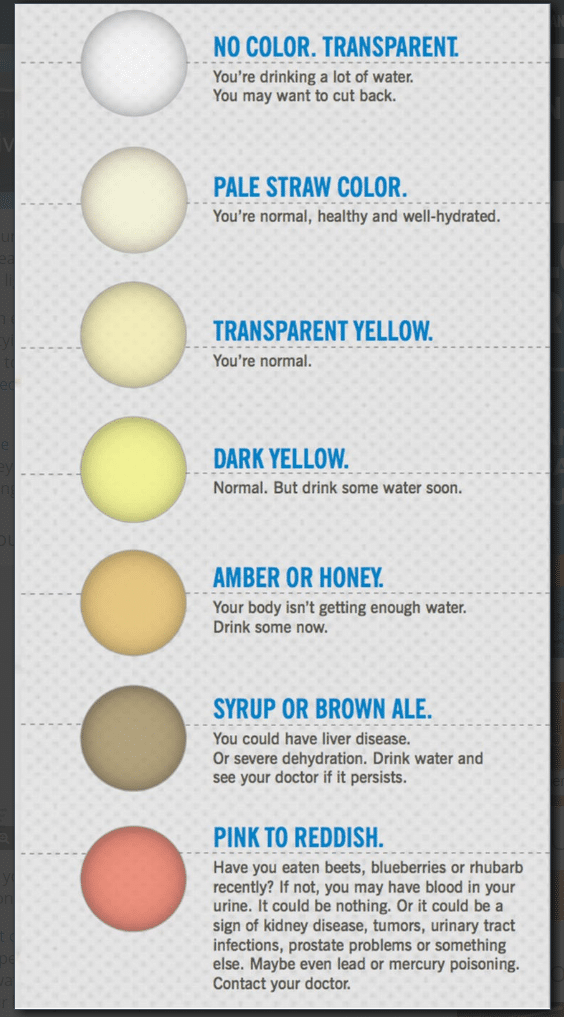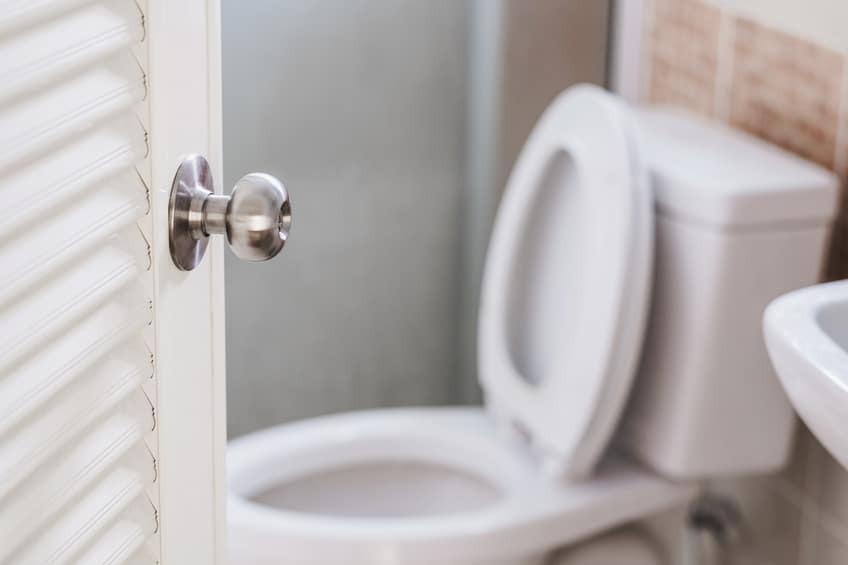Since the earliest days of medicine, human urine has been a useful tool of diagnosis. But it often doesn’t take a lab test to know that urine indicates a medical problem.
You can tell just by looking at the color. Healthy pee should be a pale straw color.1
What Should Your Pee Look Like?
The chart below from the Cleveland Clinic shows the most common hues of urine and what they may mean. Generally, lighter colors are no cause for concern. But darker urine can indicate dehydration or disease.

Weird Pee Colors: What Do They Mean?
Less often, your urine can turn odd colors when you have an illness or are taking certain medications or supplements.2,3
Orange: You could have a liver or bile duct condition. Orange urine can also be caused by food dyes and vitamin B complex supplements. Two common medications can cause orange pee. They are phenazopyridine for urinary tract infections and warfarin, a blood thinner.
Blue or Green: The bacteria that cause urinary tract infections can turn urine blue or green. So can methylene blue. This a dye used in medical tests.
Black: Yes, urine can be black. It is caused by certain drugs and supplements including nitrofurantoin (antibiotic), metronidazole (antifungal), methylcarbamal (muscle relaxant), and cascara (natural laxative).
Recommended for You: You don’t have to dribble like a baby. Now you can pee like a man.
Remember when your stream was so strong that the toilet water would froth and bubble? You can have that again. Discover the medieval secret to putting the “muscle” back in your output HERE.
If your urine suddenly changes color without explanation, you should contact your doctor.
You may notice that your pee is foamy sometimes. Passing foamy urine now and then is normal. But if it happens often, increasing in frequency over time, you should consult your doctor. It could be a sign of protein in your urine. This can indicate a kidney problem.4
It may be a little yucky, and it’s certainly not high-tech. But paying attention to the color of your pee is one of the easiest ways to monitor your health.
In Good Health,

Angela Salerno
Executive Director, INH Health Watch
Like this Article? Forward this article here or Share on Facebook.
References:
1http://www.livescience.com/55602-what-pee-and-poop-color-says-about-health.html
2https://medlineplus.gov/ency/article/003139.htm
3http://www.disabled-world.com/calculators-charts/urine-facts.php
4http://www.mayoclinic.org/diseases-conditions/urine-color/expert-answers/foamy-urine/faq-20057871

